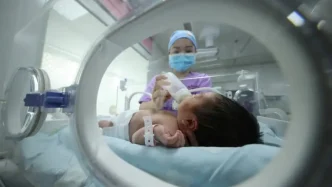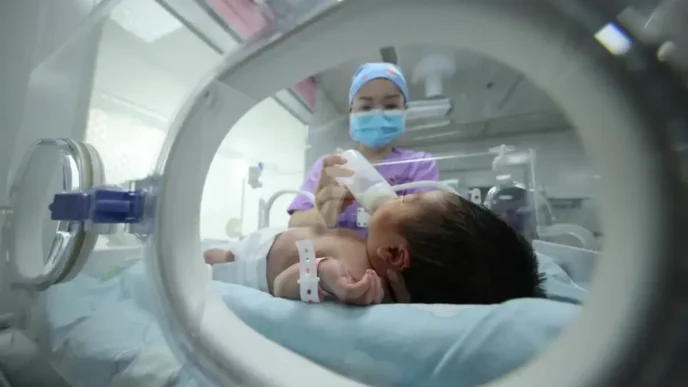In a climate of growing anticipation, Vietnam’s political sphere is abuzz with speculation over potential leadership changes within the Communist Party of Vietnam (CPV). As the country approaches key political milestones, including the upcoming National Congress in 2026, whispers of reshuffles at the highest levels have sparked discussions about the future direction of Vietnam’s governance and policy priorities. While no official announcements have been made as of April 3, 2025, the political undercurrents suggest a critical juncture for the nation.
Rumors of Transition Gain Traction
Recent weeks have seen unconfirmed reports of deliberations within the CPV’s Central Committee regarding the succession of key figures in the Politburo, including the position of General Secretary, currently held by Nguyen Phu Trong. Sources close to political circles in Ha Noi indicate that health concerns and the need for generational renewal may be driving internal conversations, though no evidence has been presented to substantiate these claims. Analysts suggest that if a transition were to occur, it could signal shifts in Vietnam’s domestic and foreign policy, particularly in its balancing act between major global powers like China and the United States.
The opacity of Vietnam’s political system, where decisions are often made behind closed doors, adds to the uncertainty. Public statements from the CPV have remained characteristically restrained, emphasizing stability and continuity. As one political observer noted during a recent discussion in Ha Noi, “The party prioritizes unity above all else, so any change will be carefully managed to avoid disruption.”
Historical Context of Leadership Changes
Leadership transitions in Vietnam have historically been pivotal moments, often reflecting broader ideological debates within the CPV. The General Secretary, as the de facto leader of the party and the nation, wields significant influence over policy direction, from economic reforms to national security. Nguyen Phu Trong, who has held the position since 2011, is widely credited with spearheading anti-corruption campaigns that have reshaped the political landscape, targeting high-ranking officials under the banner of “burning the furnace” to cleanse the system. However, his tenure has also drawn scrutiny for its conservative tilt, with some critics arguing it has slowed social and political reforms.
If speculation about a transition proves accurate, the choice of successor could indicate whether the CPV intends to maintain its current trajectory or embrace a more reformist agenda. Potential candidates, though not officially named, are rumored to include figures from the current Politburo, each with distinct regional and ideological ties. Such a decision would likely be influenced by the need to balance factions within the party, a hallmark of Vietnam’s consensus-driven politics.
Domestic Implications of a Potential Shift
At home, a change in leadership could have far-reaching implications for Vietnam’s economic and social policies. The country has enjoyed robust growth in recent years, positioning itself as a manufacturing hub amid global supply chain shifts. However, challenges such as income inequality, environmental degradation, and the impacts of climate change remain pressing. A new leader might prioritize accelerating reforms to address these issues, potentially easing restrictions on civil society or adopting bolder environmental targets to align with international commitments.
Public sentiment, as gauged through conversations in urban centers like Ho Chi Minh City and Ha Noi, reflects a mix of cautious optimism and skepticism. Many Vietnamese citizens express pride in the nation’s stability and growth but remain wary of political opacity. “We hear rumors, but we don’t know what to believe until the party speaks” said a small business owner in Ha Noi, capturing a common sentiment of uncertainty.
Foreign Policy in Focus
On the international stage, Vietnam’s leadership decisions are closely watched by global powers. The country has navigated a delicate path, maintaining strong ties with China while deepening partnerships with the United States, Japan, and the European Union. Under Nguyen Phu Trong, Vietnam has pursued a policy of “bamboo diplomacy,” a metaphor for flexibility and resilience in foreign relations. Any new leader would face the challenge of preserving this balance amid escalating geopolitical tensions in the South China Sea and beyond.
Analysts suggest that a more reform-minded leader could tilt Vietnam closer to Western partners, potentially accelerating trade agreements or security cooperation. Conversely, a conservative successor might prioritize continuity, reinforcing ties with traditional allies like China and Russia. While speculative at this stage, such possibilities underscore the stakes of any leadership transition.
Economic Priorities and Public Expectations
Vietnam’s economic trajectory will likely remain a central concern for any incoming leadership. The nation has ambitious plans to become a high-income economy by 2045, a goal that requires sustained investment in infrastructure, technology, and education. Recent government initiatives have focused on digital transformation, with significant funding allocated to tech startups and e-governance projects. For instance, a recent program in Ho Chi Minh City aims to digitize public services, with costs estimated at 2.5 trillion Vietnamese Dong (US$98 million) over the next five years.
Yet, economic disparities between urban and rural areas persist, fueling calls for more equitable development. A potential leadership change could bring renewed focus on rural investment or social welfare programs, addressing long-standing grievances among marginalized communities. Public expectations are high, with many hoping for policies that balance growth with inclusivity.
Speculation and Stability
As speculation mounts, the CPV faces the dual challenge of managing internal dynamics while projecting an image of stability to the public and the world. Historically, the party has been adept at orchestrating transitions with minimal disruption, as seen in past handovers of power. However, in an era of rapid global change and domestic demands for transparency, the stakes are arguably higher.
For now, the absence of official confirmation means that much of the discourse remains conjectural. Political analysts caution against reading too much into unverified reports, emphasizing the importance of patience until the CPV provides clarity. If a transition does occur, it will likely be framed as a natural progression, aligned with the party’s long-term vision for Vietnam’s development.
Looking Ahead
As Vietnam stands at a potential crossroads, the coming months will be critical in shaping the narrative around its leadership and policy direction. Whether the current speculation materializes into concrete change or dissipates as rumor, the discussions it has sparked reflect broader questions about the nation’s future. For many Vietnamese citizens and international observers alike, the hope is for a leadership that can navigate both domestic aspirations and global challenges with foresight and resilience.
In Ha Noi and beyond, the political air remains thick with anticipation. As events unfold, the world watches to see how Vietnam’s unique blend of tradition and ambition will guide its next chapter.














